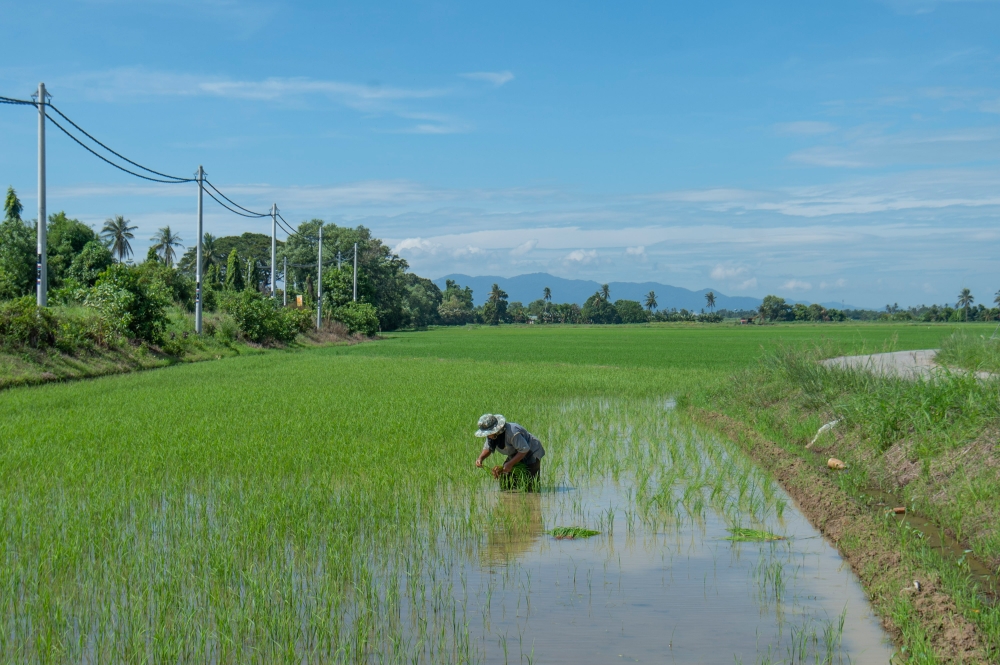MARCH 1 — I predicted that the new administration's solutions to poverty would include such things as targeted subsidies and promoting entrepreneurship.
If only I was wrong.
Rafizi Ramli again is preoccupied with that notion of “teaching a man to fish.” For decades the government's approach to disadvantaged groups is to tell them to get into business.
Why has Rafizi, and previous administrations, learned nothing?
Rafizi apparently thinks that running food and agriculture-related businesses are easy money-making endeavours.
Has he never seen the poverty many farmers live in? Not just in Malaysia, but all over the world?
The thing about farming is how vulnerable it is to things such as the weather and living in this era of climate change, it takes just one disaster to destroy a farmer's livelihood for a year.
Farming is not as easy as planting a few seeds, seeing them grow and bringing them to market. It takes time and expertise, with a lot of investment involved.

Has Rafizi not taken into account that succeeding in business is not a given? More businesses fail than succeed and those on lower incomes would have a harder time weathering failures than those who are rich or have easily obtainable credit lines.
Pushing people into the gig economy isn't a solution either ― what gig work should have been is supplementary income or something to tide people over between jobs.
There's also the notion that Rafizi shares with too many people that getting into the food business is easy.
It's also what pushes the high take-up of stalls at Ramadan bazaars. All those hungry people are easy pickings, right? The food doesn't have to be good, it just has to be there, or so the thinking goes.
This is why I have avoided said bazaars for ages. Too many stalls, with substandard food, and a lack of adherence to hygiene standards.
I've seen sushi, of all things, sold without being chilled or covered at those bazaars, just waiting to give someone food poisoning.
You want people not to be poor? Just give them money, Rafizi. Accept that there are some people who will not be able to sustain themselves by selling sausage rolls at roadside stalls.
These are the old, the infirm, the unskilled poor or anyone unable, for many reasons, to get employment that pays enough.
We still haven't fixed one of Malaysia's oldest problems ― creating enough good jobs. Why aren't we helping people with reskilling, why aren't we working on raising pay levels instead of maintaining them at numbers that haven't changed in decades?
Why do employers think that RM1,200 is acceptable for anyone besides a part-timer?
Rafizi complained that there were poor Malaysians who just “didn't want to do anything.”
It's adorable that someone who has lived a fairly comfortable life, earning a high-income just a few years out of university, is contemptuous that people don't want to work themselves to the bone for very little money.
Forcing people to work or throwing grant money/micro loans at them as motivation is not effective.
Make a better life attractive. Make having goals or dreams not seem like a waste of time. Open people's eyes to possibilities instead of just calling the poor ignorant and lazy.
I was lucky because my parents saw the only way for their children to have futures was to make sure they get as much education as they could.
Now an education is no longer a guarantee that life will be better ― instead it has become a burden, with education loan repayments shrinking already meagre take-home pay.
My biggest problem with Malaysian politicians is their lack of imagination and I am sad to see that a new administration does not bring in new ideas, but old prejudices repackaged with fancy slogans.
What will it take for the elites to do more than blame the poor for existing? Perhaps only when poverty is no longer one of the things that empower the rich.
* This is the personal opinion of the columnist.






















